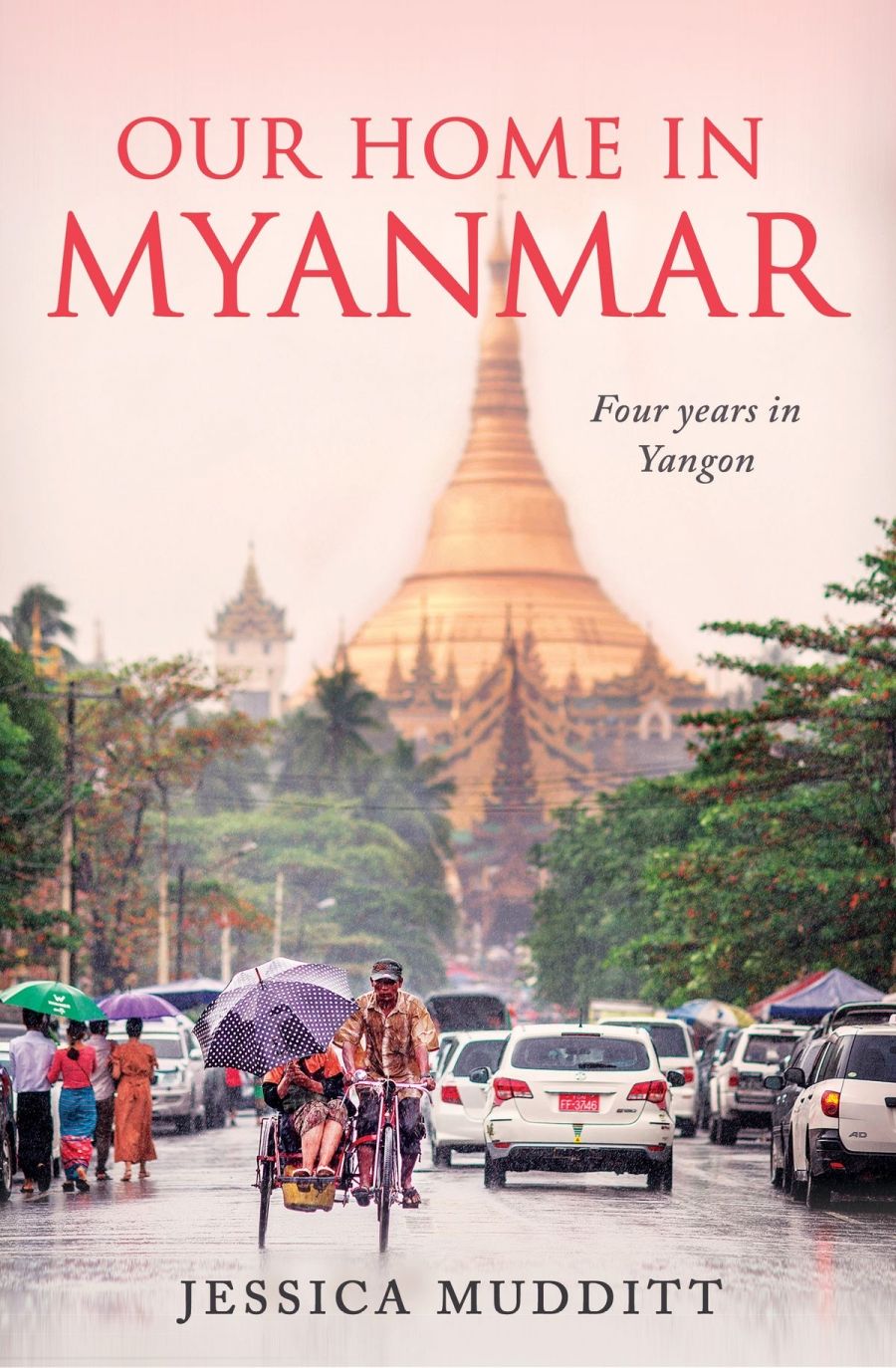
- Free Article: No
- Contents Category: Memoir
- Review Article: Yes
- Article Title: Life in a dictatorship
- Article Subtitle: Snapshot of a lost Myanmar
- Online Only: No
- Custom Highlight Text:
Our Home in Myanmar: Four years in Yangon is an Australian woman’s account of her four years living and working in Yangon, the commercial capital of Myanmar. In 2012, Jessica Mudditt arrived there with her Bangladeshi husband; they were looking for adventure and a way to pay for the experience. This is Jessica’s story: how she found work with an English language newspaper, her experiences as a foreigner, her fractious relationships with expat colleagues, the struggle to find suitable accommodation, the shock of her summary dismissal, her money and visa problems, and her subsequent work with the British Embassy, before freelancing and working as foreign editor at the much-derided state-run newspaper, the Global New Light of Myanmar.
- Featured Image (400px * 250px):

- Alt Tag (Featured Image): Nicholas Coppel reviews 'Our Home in Myanmar: Four years in Yangon' by Jessica Mudditt
- Book 1 Title: Our Home in Myanmar
- Book 1 Subtitle: Four years in Yangon
- Book 1 Biblio: Hembury Press, $29.95 pb, 318 pp
- Book 1 Readings Link: booktopia.kh4ffx.net/a122yQ
Through the recounting of her trials and tribulations, we learn snippets about Myanmar and its long-suffering people, ruled for more than fifty years by a paranoid and self-serving military dictatorship. Mudditt touches on events and persons from Myanmar’s past, sufficiently for a reader unfamiliar with the country to gain some understanding of how and why Myanmar was in that shape. Mudditt, who witnessed Myanmar at a time of dramatic change, conveys well the drama of a nation emerging from years of repression. She shares the palpable excitement of not one but two visits by President Barack Obama and then the first fully contested democratic elections in more than fifty years. The dark undercurrent of racism against people from South Asia is felt personally through the lived experiences of her husband, who was ultimately unable to renew his visa because of rising anti-Bangladesh and anti-Muslim sentiment.
Mudditt’s four years in Myanmar, which partially overlapped with my four years as Australia’s ambassador, were quite different from mine. Hers is a tale of an enterprising journalist making her own way with few resources, mixing with and learning from other expats. I lived in the same city for some of the same time, but didn’t face her challenges with accommodation, transport, or finances. I had my own challenges, but they were professional rather than personal, and I had a team to help me. While I was engaged in government-to-government communication – the core business of diplomacy – Mudditt was editing stories or writing feature articles. We lived parallel lives.
Our Home in Myanmar is not a history of Myanmar or an academic analysis of the country’s many challenges, although it does manage to provide a lot of information about the country. As the title indicates, it is primarily about her life and her home in Yangon.
This book captures an extraordinary period in Myanmar’s tragically short-lived transition to democracy, when, for a few years, hope replaced fear. There is no shortage of academic and think-tank analysis of the incomplete transition, but this is the first book in English to recount what it felt like to live through that ecstatic period. Mudditt was there when hope and freedoms reached their imperfect peak. Shortly after Mudditt left in September 2016, the military, led by Commander in Chief Min Aung Hlaing, launched attacks on Rohingya communities in Rakhine State, burning villages, committing other human rights abuses, and forcing more than 700,000 Rohingya to flee to Bangladesh, where, five years later, they continue to suffer in squalid refugee camps.
In February 2021, Hlaing mounted a violent coup against the democratically re-elected government of Aung San Suu Kyi, imprisoning her and thousands of others, killing more than nine hundred protesters, sharply curtailing internet access, forcing media outlets to close (including the one that first employed Mudditt), and throwing the economy into a downward spiral.
The Myanmar that Mudditt knew and writes about so eloquently is gone. This makes her book all the more valuable as a snapshot of what has been lost. It is a picture of what Myanmar might once again become, as well as highlighting the undeniable need for Myanmar to be a more inclusive society. She and I have now both left Myanmar, but the vast majority of its people don’t have that option and face an uncertain period of military dictatorship, again.


Comments powered by CComment